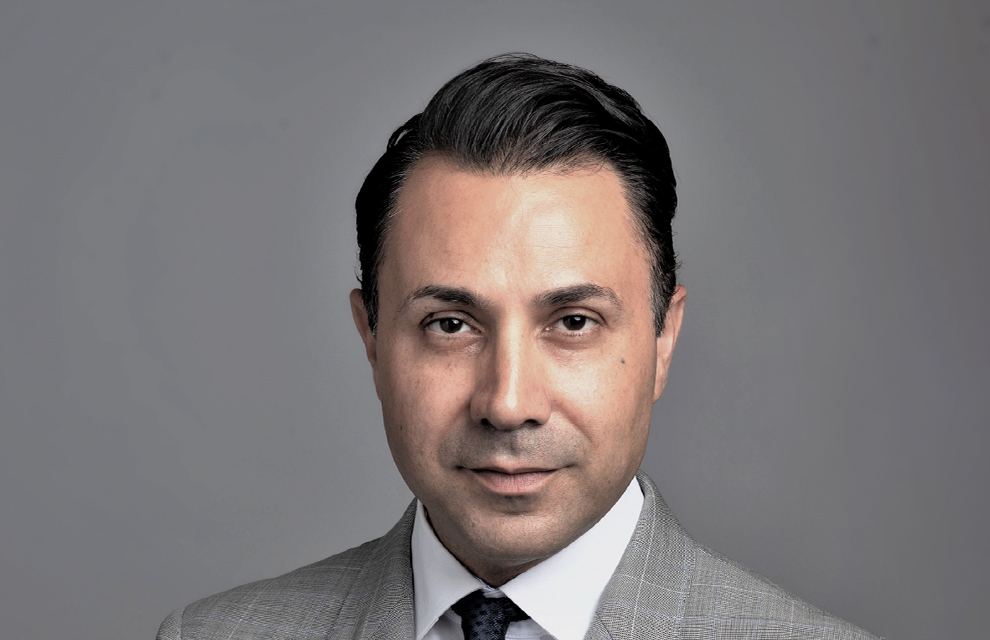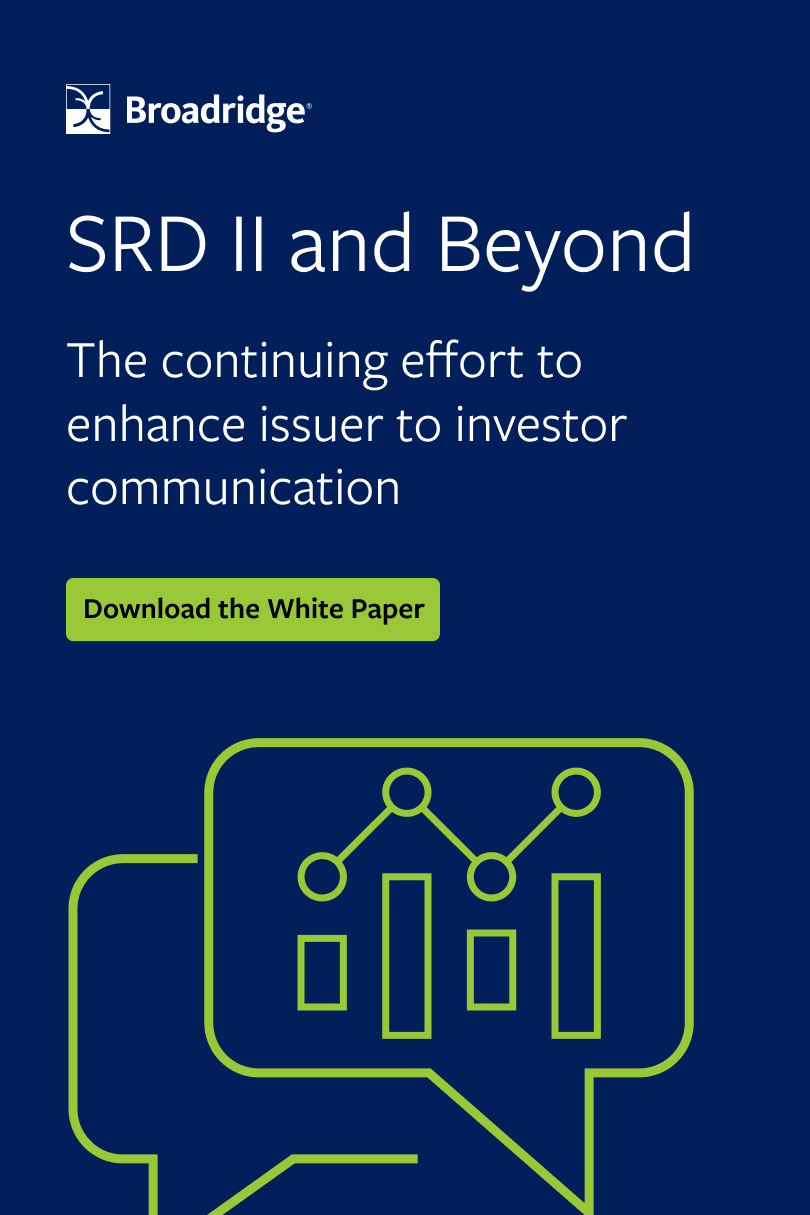Do you think the industry is ready for SRD II?
As we approach the 3 September deadline, our major focus has been to support our clients in getting ready for the changes the second Shareholder Rights Directive (SRD II) presents, which are significant from an operating and business model perspective.
From what we have seen, the industry is ready to varying degrees. While some intermediaries, such as global custodians, are fully aware of their new obligations under SRD II and are duly prepared, for many other firms in the banking, brokerage and wealth industries, the provision of services such as proxy voting and shareholder disclosure are new and present challenges.
In any case, given the impact of COVID-19 on all aspects of life, regulators may take a pragmatic approach to compliance. This means that for new entrants, in particular, the most important thing will be to show engagement in the process and to have a plan in place to be compliant either by the 3 September deadline or shortly after.
What have been the biggest challenges?
The biggest challenges that SRD II poses for the industry are interpretation, lack of standardisation and implementation. On interpretation, the terms used in the directive are somewhat open, resulting in some firms expressing difficulties with understanding the requirements and changes that need to be made.
Meanwhile, many firms have struggled to implement changes, largely due to the delay in transpositions and the complexity involved in updating existing processes and technology to allow for enhanced automation and data security so that information can be passed efficiently up and down the chain of intermediaries between the investor and shareholder.
How has the pandemic affected SRD II implementation preparations?
Undoubtedly the pandemic has frustrated implementation preparations. Earlier in the year, we saw a number of appeals to the European Commission to ask for a delay to the SRD II deadline, citing the widespread disruption caused by the pandemic as a major obstacle to implementation. Companies had been forced to adapt quickly to carry out business as usual, and the letter to the European Commission was evidence that firms were finding it difficult to make the structural changes necessary to meet the new investor communications requirements in the current global environment.
The directive is set to enable closer engagement between a company and its shareholders, what opportunities will this bring?
SRD II represents a significant opportunity for firms to improve not just transparency and engagement, but also to address operational inefficiencies and achieve greater levels of automation through standardisation. The world of investor services is changing – and the increased automation of voting through proxy can help remove human error, and improve accuracy and speed.
Firms that have historically not offered SRD II-compliant services have been waking up to the fact that they need help; as a result, we have seen unprecedented demand for our services this year, with new clients being signed across markets in Europe and other regions, including multiple tier-one banks, brokers and wealth managers.
Do you think the SRD II go-live will be smooth?
We expect mixed results from the industry in the first few months after the September deadline. In May this year, we conducted a survey which showed that a significant number of firms had struggled to understand their new obligations and introduce the changes that SRD II demands of them.
It is likely that it will take some time for the industry to evaluate which parts of the regulation and implementing law require further alignment and definition. Consequently, we also expect to see a number of firms modify their day one compliance strategies post go-live.
Do you think the financial industry has somewhat been left to their own devices to come up with harmonised and standardised practices as well as interpreting legal definitions associated with SRD II?
In certain aspects, yes. With process and legal terms remaining somewhat open to interpretation and varying by jurisdiction, the industry has in certain areas been left to its own devices to come up with harmonised and standardised practices. As an example, we have seen that the Shareholder Disclosure process has caused some excitement in debates, as members of the industry have disagreed on interpretations over the definition of terms like “shareholder” and “without delay processing”. Going forward, we believe that it will be necessary for the market to come together to agree on elements of ambiguity through either a common body or service provider that can help shape, set and implement standards. I think that it is also reasonable to expect that, over time, member states will revisit the definition of shareholder so that the definition has the same meaning across all member states



